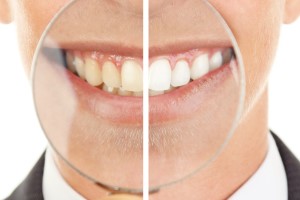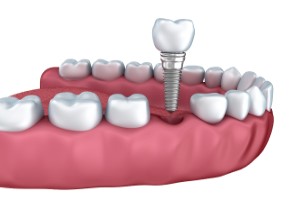Are There Signs of Dental Implant Failure?

Teeth problems are not fun for anyone, and having a failed Dental Implant can be particularly frustrating. What is your plan if an implant has issues? Are there signs of failure, or indications that a failure is imminent, that you can watch out for? Understanding how a Dental Implant procedure works can aid in determining if there are problems.
What are dental implants?
For many years, especially in the infancy of dentistry, options for tooth removal were severely limited. Patients could have the tooth removed and leave the space empty or they could get a denture device. It was not until the early 2000s that implants began to increase in popularity among dental professionals. Today, implants are a way to restore a patient’s smile without the use of a temporary device.
The first step of an implant procedure is to install the implant itself. This implement is embedded in the jawbone and provides the foundation for an artificial tooth. The second step is to add a connector to the implant, which allows the tooth to be mounted. Last, the artificial tooth (or crown) is custom molded to match the patient’s teeth and is attached to the connector.
What are the signs of implant failure?
Implant movement
In most procedures, the implant is installed and then some time is allotted before the connector or crown are added. This gives the implant time to embed in the jawbone and begin to bond. Occasionally, the bonding is not complete before the crown is added. Sometimes the jawbone lacks the strength to support an implant. When these situations occur, the crown and implant can move. If there is any type of movement of the crown, chances are good the implant has issues.
Gum or tooth pain
While rare, one complication of this type of procedure is an infection. Infection is always a potential risk when any type of surgery is performed. A common sign of an infection is pain around the install site. This could be gum pain or perceived tooth pain. Either situation calls for a visit to the oral surgeon.
Inflammation and fever
With an implant, the dentist is effectively introducing a foreign body to the patient’s jaw. Any time a foreign object is introduced to a human body, there is potential for the body to reject it. An implant rejection can often present with severe inflammation around the install site. In addition to inflammation, fever and chills are potential symptoms. The surgeon should be notified right away if these symptoms occur.
Numbness or tingling
Another sign of implant failure is when there is numbness at the install site, lips, tongue or face. Additionally, a tingling sensation at these locations can be an indicator of problems. Numbness and tingling are both signs of potential tissue or nerve damage.
Conclusion
If you have had Dental Implant surgery and are experiencing any of the issues noted, it would be a good idea to reach out to an oral surgeon. A good surgeon can look at the symptoms, make an analysis and develop a corrective course of action.
Request an appointment here: https://jacksonheightdental.com or call 82nd St. Dental at (718) 476-5555 for an appointment in our Jackson Heights office.
Check out what others are saying about our All-on-4 Dental Implants services on Yelp: All-on-4 Dental Implants.
Recent Posts
All-on-4 dental implants can effectively restore a complete smile, offering a permanent and natural-looking alternative to traditional dentures. Many patients who have lost most or all of their teeth can qualify for this procedure, as it mainly requires good general and oral health. Learning about the basics of the All-on-4 procedure, its benefits, and eligibility…
Are you missing teeth? You are not alone. According to the American College of Prosthodontists, over 36 million U.S. residents have no teeth. An All-on-4® treatment can treat a full arch of missing upper or lower teeth, restoring your ability to chew, speak, and swallow normally while providing a natural look.All-on-4® dental implants are fixed…
More and more people are getting All-on-4® to replace missing teeth. This is a popular option for those missing all of their teeth. However, if you have lost teeth, it can be problematic for both your appearance and oral health. For example, you may feel embarrassed by how your teeth look when you smile or…
Patients lose teeth for a variety of reasons, including tooth decay and trauma. The All-on-4® procedure is an option for patients who want to quickly replace a full set of missing teeth. The All-on-4® procedure's name is a reference to utilizing four dental implants to support an entire upper or lower arch of teeth. Conventional dental…






